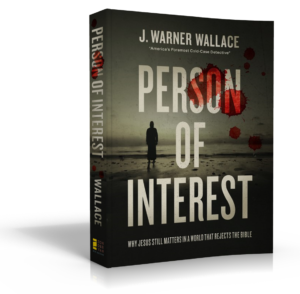Does any one piece of history demonstrate that Christianity is true? If not, how can we be sure there’s enough evidence to trust what the New Testament has to say about Jesus? Riley O’Neil from the King’s Academy discusses the issue with J. Warner on the King’s Academy YouTube Channel.

J. Warner Wallace is a Dateline featured cold-case homicide detective, popular national speaker and best-selling author. He continues to consult on cold-case investigations while serving as a Senior Fellow at the Colson Center for Christian Worldview. He is also an Adj. Professor of Christian Apologetics at Talbot School of Theology, Biola University, and a faculty member at Summit Ministries. He holds a BA in Design (from CSULB), an MA in Architecture (from UCLA), and an MA in Theological Studies (from Gateway Seminary).






































S Kris
July 13, 2021 at 6:30 pm
Dear Jim,
Your writings have been an inspiration, keep up the good work!
It’s been over 40 years since I asked Jesus to come into my life. As a young adult convert brought up by my widowed but also highly-devout Hindu mother, it was more of an emotional choice (I was searching for something, anything, that I could understand that had non-contradictory messages) and Christianity appeared the most sane option. Immediately after that a lot of my life changed (from good, to much better!) convincing me that in spite of my resistance and self reliance, Jesus WAS in control, and regular devotion enabled me to connect the two.
In more recent years seeing how “lucky” my own life has been (in spite of loosing half my wealth during the GFC) compared to so many of my other close friends and associates, I have started to focus on the Why of being a Christian – and your rational argument about how the Resurrection is true fact (always a light headed emotional belief until then) came at the right time (!) and has spurred me on to get young people to understand Jesus is real.
Then I read the the book (and watched the movie) Heaven Is For Real which tilts the whole argument about a sick boy (who never dies – that is SO important) who sees his (previously secret) miscarried sister and his great grandfather “in Heaven” and later picks the Price Of Peace painting as truth. Why would that be a powerful message? Well – think about it – what 4 year old boy raised in a Protestant household knows about the stigmata??! All made up? Again, like the Resurrection, possibly. But unreasonable.
Cheers, and God bless!